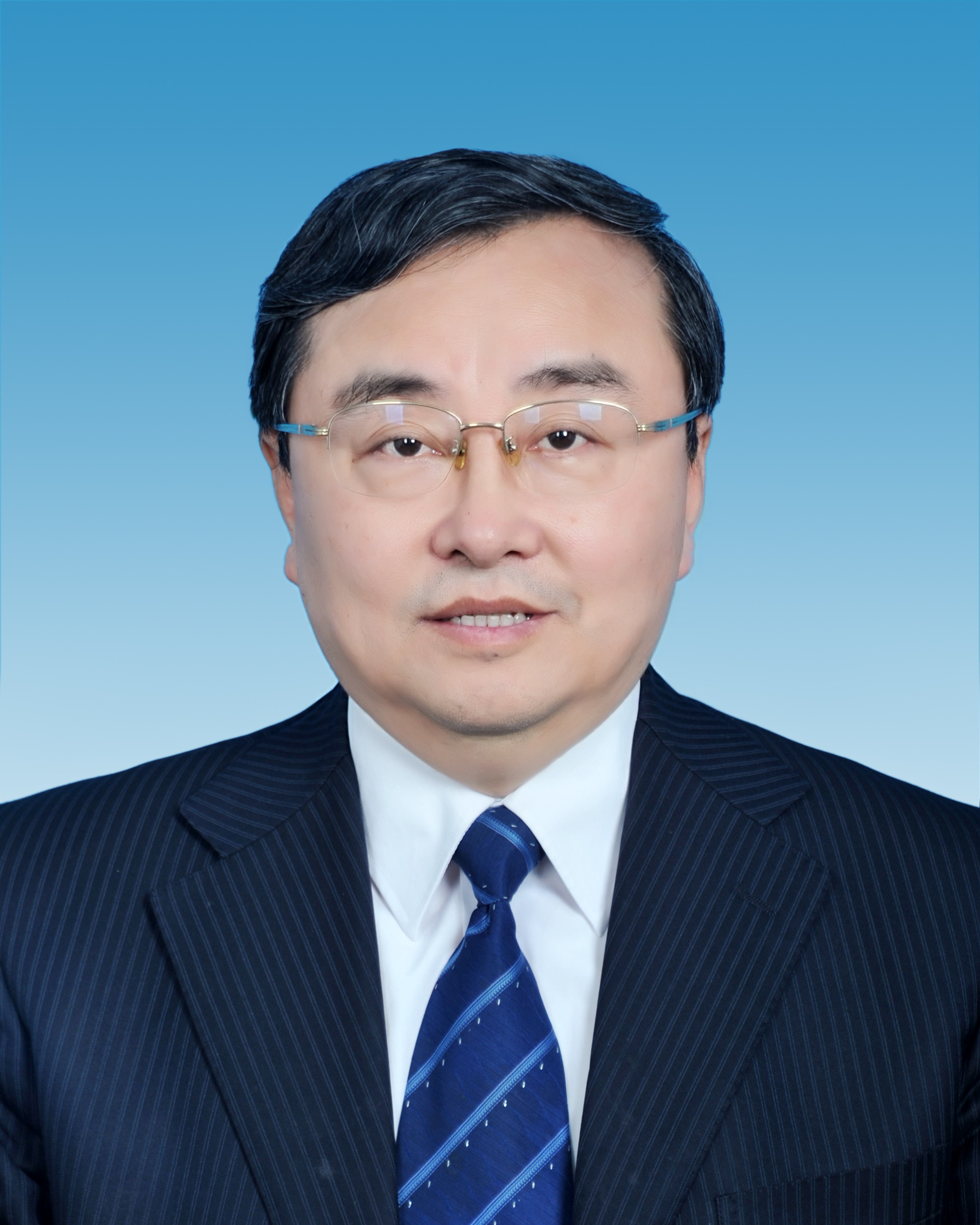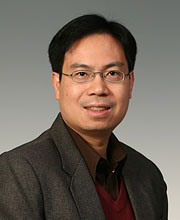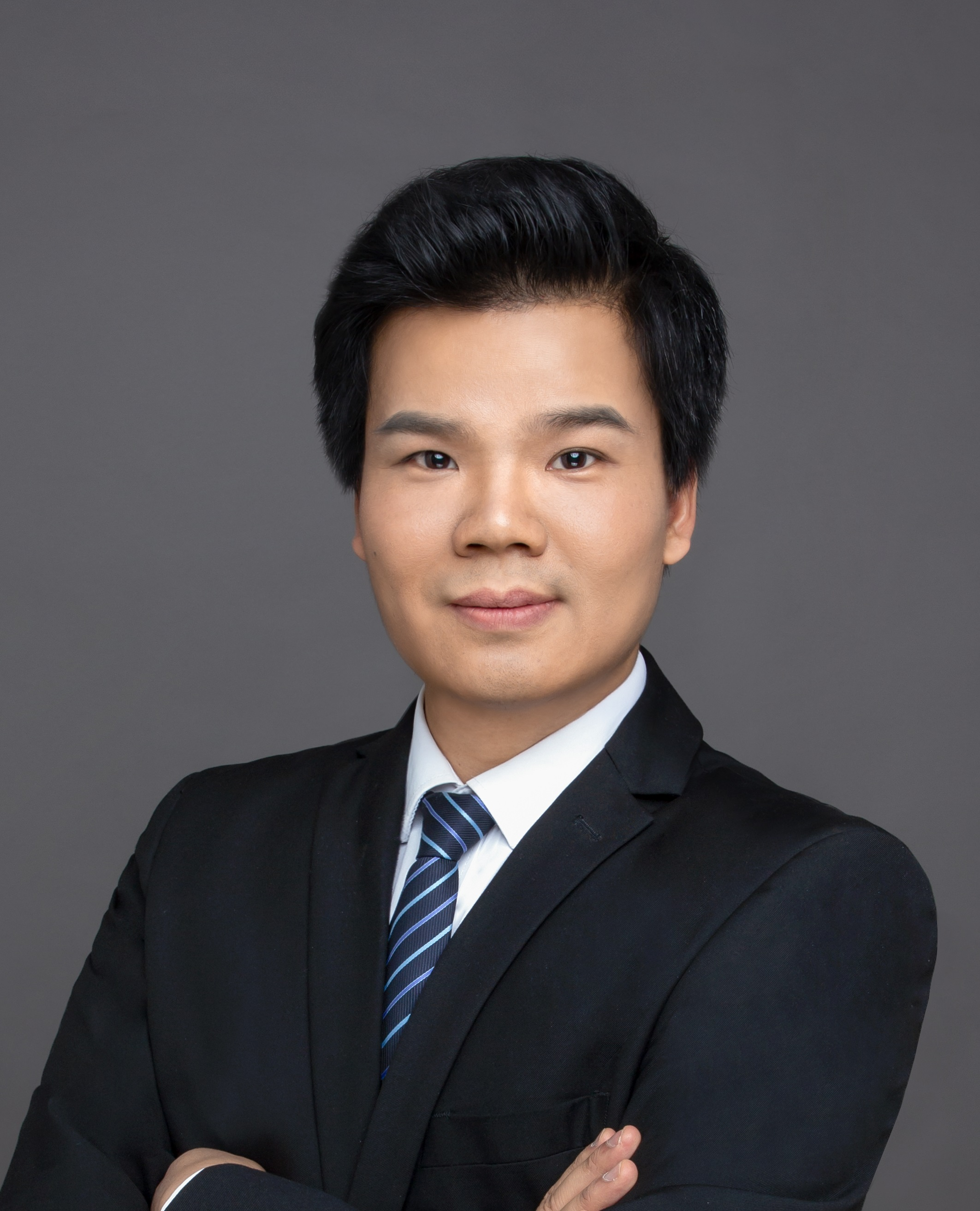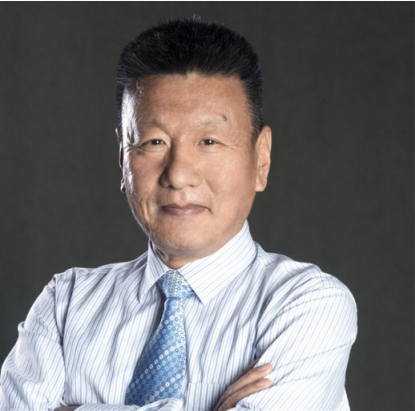
Keynote
XU Xiaofei
Harbin Institute of Technology

KEYNOTE Title: New Forms and Challenges of Services in Metaverse Ecosystems
KEYNOTE ABSTRACT:
With rapid development of new generation information technology, e.g. AI, VR/AR/MR, IoT, 5G/6G, NFT, block chain, cloud and edge computing, digital gaming, etc., the metaverse appears as a new form of information society. In metaverse ecosystems, the digital virtual society interacts with the real world very deeply and frequently in different forms such as digital twins, virtual natives, virtual-real interaction and symbiosis. The new features of digital technologies and virtual-real interactive societies in metaverse causes big changes of services in the new environment. The immersion, interactivity, mapping, experiential, and imagination of virtual-real world in metaverse require more interoperability and convergence across multi-domains and multi-worlds, more user friendly experiential, more complicated mapping and diverse forms of services between/across digital virtual world and real world. Even the ethos, thinking and approaches to apply services for business and human life in metaverse will be greatly changed. In this keynote speech, the new chances and challenge problems of services in metaverse ecosystems will be introduced. The insights about new forms, features, architectures, human-system interaction approaches, methodologies, key support techniques, and typical application scenarios of big service in metaverse environment will be presented. The excited new era of metaverse is appearing, and the interested chances of metaverse services will be coming together. We should be ready for this time.
BIOGRAPHY:
Prof. Xu Xiaofei is vice president of Harbin Institute of Technology (HIT), president of HIT-Weihai Campus, and director of the Research Institute of Intelligent Computing for Enterprises and Services of HIT( HIT-ICES). He is also fellow and council member of China Computer Federation (CCF), vice director of China University Teaching Steering Committee on Software Engineering, vice director of China University Teaching Steering Committee on Teaching Digitalization and Innovation, vice chairman of China Industry-University-Research Association on New Engineering on Information Technology. His research interests include service computing, software service engineering, big service and Internet of Services (IoS), enterprise computing and enterprise interoperability, software engineering, data mining and business intelligence, etc. He has been in charge of more than thirty Chinese national key research projects and key projects of China Natural Science Foundation or provincial scientific foundations. He has been general co-chairs or PC co-chairs in more than 30 international conferences, including IEEE ICWS, SCC, ICSOC, ICSS, CEISEE, etc. He has won IEEE TCSVC Outstanding Awards, and received twenty national and provincial awards on teaching and research. He is the author or co-author of more than 300 papers in international journals or conferences, and eight academic books. He has supervised 35 doctors and more than 100 masters.
Shing-Chi Cheung
Department of Computer Science and Engineering,
The Hong Kong University of Science and Technology

KEYNOTE Title: Testing Service-Oriented Software without Precise Test Oracles
KEYNOTE ABSTRACT:
A major challenge in testing service-oriented software like decentralized applications (DApps) is the indetermination of global states, making the design of precise test oracles difficult. In this talk, I will visit the use of Metamorphic Testing, which was originally proposed to address the test oracle problem, for testing service-oriented software. It is reported that metamorphic testing can effectively expose bugs in the services hosted by YouTube and Spotify. The testing technique has also been successfully deployed at Facebook (now called Meta). In the beginning of the talk, I will review the fundamental of metamorphic testing and its adoption. The core of metamorphic testing is the design of its underlying metamorphic relations. I will demonstrate the design of effective metamorphic relations for service-oriented software using an example of synchronization bug detection in DApps. The talk will be concluded with the discussion of various research opportunities.
BIOGRAPHY:
Prof. Shing-Chi (S.C.) Cheung received his Bachelor’s degree in Electrical and Electronic Engineering from the University of Hong Kong, and his PhD degree in Computing from the Imperial College London. After doctoral graduation, he joined the Hong Kong University of Science and Technology (HKUST) where he is a professor of Computer Science and Engineering. He founded the CASTLE research group at HKUST and co-founded the International Workshop on Automation of Software Testing (AST), which is now an annual IEEE international conference. He serves on the editorial board of Science of Computer Programming (SCP) and Journal of Computer Science and Technology (JCST). He was an editorial board member of the IEEE Transactions on Software Engineering (TSE, 2006-9) and Information and Software Technology (IST, 2012-5). He participates actively in the program and organizing committees of major international software engineering conferences. He chaired the 19th Asia-Pacific Software Engineering Conference (APSEC) in 1996, 1997 and 2012. He was the General Chair of the 22nd ACM SIGSOFT International Symposium on the Foundations of Software Engineering (FSE 2014). He is an extended member of the ACM SIGSOFT executive committee. His research interests lie in the software engineering methodologies that boost developer productivity and code quality using software testing and analysis, artificial intelligence, software analytics and empirical software engineering. His works were awarded the ACM SIGSOFT Distinguished Paper five times. He is a distinguished member of the ACM. More information about his CASTLE research group can be found at http://castle.cse.ust.hk/castle/people.html.
Qingwei Lin
Microsoft Research

KEYNOTE Title: Cloud Intelligence / AIOps: infusing AI/ML into cloud computing systems
KEYNOTE ABSTRACT:
In the past fifteen years, the most significant paradigm shift in the computing industry is the migration to cloud computing, which brings unprecedented opportunities of digital transformation to business, society, and human life. Therefore, the quality of cloud platforms, including reliability, availability, performance, capacity efficiency, security, sustainability, etc., has become immensely important. However, the distributed nature, massive scale, and high complexity of cloud platforms present huge challenges to design, build, and operate such systems effectively and efficiently.
To address these challenges, "Cloud Intelligence/AIOps" is to infuse AI/ML into the designing, building, and operation of high-quality and high-efficiency cloud systems at scale. In this talk, I will first introduce the concept of “Cloud Intelligence/AIOps” and its research landscape. Then using a few projects at Microsoft as examples, I will talk about the work from Microsoft Research and its impact. I will also discuss the research challenges and opportunities in this area moving forward.
BIOGRAPHY:
Dr. Qingwei Lin is a Sr. Principal Research Manager at the DKI (Data, Knowledge, Intelligence) area of Microsoft Research Asia. He is leading a team of researchers working on machine learning and data mining technologies for Cloud Intelligence/AIOps. In Cloud Intelligence/AIOps area, Qingwei has ~50 publications in influential conferences such as OSDI, NSDI, ICSE, FSE, AAAI, IJCAI, SigKDD, etc. The research technologies have been transferred into multiple Microsoft products, such as Azure, Office, Windows, etc. Qingwei chaired Microsoft company-wide "Cloud Service Intelligence Summit" for 4 consecutive years.
Yanbo Han
North China University of Technology

KEYNOTE Title: Some Architectural Considerations in Designing Service-enabled, IoT-aware and Proactive BPM Systems
KEYNOTE ABSTRACT:
Proactiveness is a longed-for feature of today’s BPM systems. IoT enables BPM to perceive and react to real-time
events in our physical world, and thus facilitating proactiveness. Service computing can support BPM with a set of
well-developed mechanisms of abstraction and inter-operation. In designing service-enabled, IoT-aware and
proactive BPM systems, however, people are often confronted with such issues as excessive complexity and
inefficiency in dealing with the fundamental misalignment of these three established paradigms. Besides technical
and methodological support, suitable architectural designs can be of big help. This talk elaborates the challenging
design issues, discusses key architectural considerations and trade-offs, and reports some intermediate progresses
of an on-going project that tries to promote proactive BPM systems.
BIOGRAPHY:
Dr. Yanbo Han has been a professor in computer science since 2000 (first with the Institute of Computing
Technology, Chinese Academy of Sciences, and now with the North China University of Technology). He holds a
Ph.D. from the Technical University of Berlin. His research interests include Internet Computing, Stream Data
Processing, Dependable Distributed Systems, and Business Process Management. He has authored or coauthored
over 200 papers and 6 books. 12 of the acquired IPs have been transferred to the industry. Dr. Han has supervised
33 PhD theses. He has organized over 20 academic events as general chairs or program chairs, and has edited 14
journal special issues in the above-mentioned areas.
